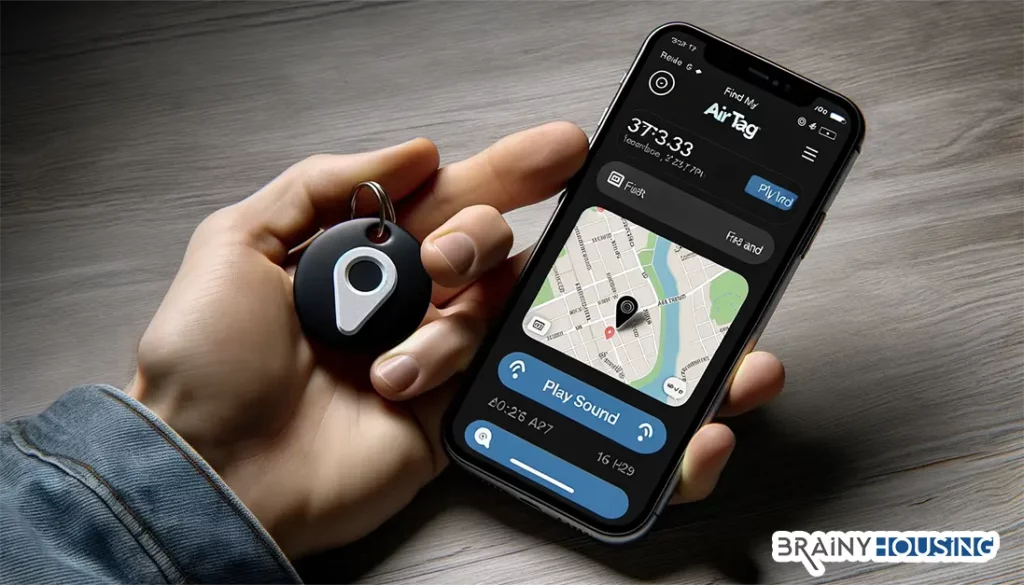Despite emerging privacy concerns, Apple’s AirTag is not actually capable of listening to users. The core functionality of the AirTag lies in tracking the location of personal belongings, not audio surveillance. This location tracking is enabled through Bluetooth technology and Apple’s Find My network, without any embedded microphones, audio processing hardware, or audio recording software. The article explores the various factors that preclude audio recording capabilities in the AirTag, including hardware limitations, software constraints, battery optimization, and Apple’s strong privacy commitments. It also outlines measures Apple has implemented to mitigate privacy risks like unwanted tracking alerts and user education. While audio recording is beyond the AirTag’s technical capabilities, users are advised to keep their iOS devices updated and leverage features like Precision Finding to deter any potential unwanted tracking.
Why Can’t AirTag Listen to You?
The design and functionality of the Apple AirTag are meticulously tailored to serve as a reliable item tracker, enabling users to effortlessly locate their misplaced or stolen belongings. The core of its operation lies in its location tracking technology rather than audio surveillance capabilities. Here’s a more in-depth look into the factors contributing to AirTag’s inability to listen to users:
- Hardware Limitations:
- No Microphone: The AirTag is devoid of a microphone, which is the primary hardware requirement for any device to capture audio. Without a microphone, it’s impossible for the AirTag to listen to or record sounds.
- No Audio Processing Units: Besides a microphone, audio capturing also requires dedicated hardware to process the audio signals. AirTag lacks these audio processing units, further emphasizing its inability to process or record sound.
- Software Constraints:
- No Audio Recording Software: There’s no software embedded within the AirTag’s firmware that is capable of audio recording or processing. The firmware is honed to support its location tracking features.
- Security Protocols: Apple’s stringent security and privacy protocols ensure that no unauthorized audio recording occurs through its devices. The absence of audio recording capabilities in AirTag is in alignment with these protocols, safeguarding users against potential eavesdropping.
- Bluetooth Technology:
- Location Tracking Focus: AirTag employs Bluetooth technology to emit a secure signal that nearby Apple devices can detect. This signal is pivotal for the functioning of the Find My network, which helps in locating the AirTag. The Bluetooth technology in AirTag is solely purposed for location tracking and does not have any audio transmission or recording capabilities.
- Battery Constraints:
- Optimized for Longevity: Incorporating audio recording capabilities would demand significantly more power, which could drastically reduce the AirTag’s battery life. The AirTag is optimized to ensure a robust battery life while delivering precise location tracking, and this optimization precludes the inclusion of power-hungry features like audio recording.
- User Privacy Assurance:
- Privacy-Centric Design: Apple has always positioned itself as a champion of user privacy. Introducing audio recording capabilities in AirTags could potentially infringe on user privacy, which is antithetical to Apple’s longstanding commitment to privacy.
- Regulatory Compliance:
- Adherence to Global Privacy Laws: By excluding audio recording functionality, Apple ensures that the AirTag complies with privacy laws and regulations across various regions, mitigating legal and ethical ramifications.

These myriad factors collectively elucidate why the AirTag cannot listen to you. Its design is a clear reflection of its intended purpose: to be a secure and reliable item tracker, devoid of any audio recording or listening functionalities.
How to Protect Your Privacy from AirTags?
Though AirTags are not equipped with listening capabilities, privacy concerns have emerged, particularly around unwanted tracking. Apple has instituted several measures to mitigate such risks:
- Unwanted Tracking Alert: If an unrecognized AirTag is moving with you, your iPhone will notify you, aiming to deter clandestine tracking endeavors.
- Privacy Warnings: New users setting up their AirTag are informed that using AirTags to track individuals without consent is a criminal offense in many regions, and the AirTag is designed to be detectable by those being tracked unknowingly.
- Precision Finding: This feature enables iPhone users to discern the distance and direction to an unknown AirTag, enhancing one’s ability to detect unwanted tracking.

These measures form a bulwark against potential privacy invasions, though users are encouraged to keep their iOS devices updated to the latest versions for optimal security.
How Does AirTag Work?
The AirTag operates through a blend of technologies:
- Bluetooth Connectivity: AirTags emit a secure Bluetooth signal that can be detected by nearby Apple devices.
- Find My Network: The detected signal is relayed anonymously and securely to the cloud, allowing the owner of the AirTag to locate it on a map through the Find My app.
- User-Friendly Interface: The Find My app provides a user-friendly interface, displaying the AirTag’s location on a map and offering directions to it.
- Sound Notifications: In closer proximity, users can prompt the AirTag to play a sound, aiding in its location.

This blend of technologies encapsulates the AirTag’s operation, designed for seamless integration into the Apple ecosystem, and focused on user privacy and ease of use. Through these mechanisms, AirTag provides a reliable solution for tracking personal belongings without veering into the realm of audio surveillance.
